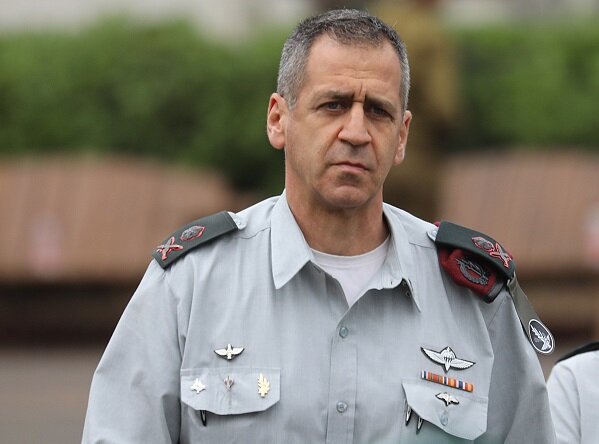Head of Israeli military in hot water over ‘empty’ threat against Iran

TEHRAN - Top Israeli military figures have denounced as “empty” and “inappropriate” the recent threats against Iran issued by the Israeli regime’s army chief of staff lieutenant general Aviv Kochavi.
Kochavi issued on Tuesday stark threats against Iran and its allies in the region. He said that Israel is not welcoming the expected efforts by the U.S. and its European allies to revive the 2015 Iran nuclear deal, officially known as the Joint Comprehensive Plan of Action (JCPOA). He claimed that he had ordered several plans to launch offensive operations against Iran while voicing Israel’s opposition to any efforts to revive the JCPOA or even to improve it.
“I have instructed the IDF to prepare several operational plans in addition to existing ones, which we will develop throughout the coming year. The power to initiate them lies with the political echelon. However, the offensive options need to be prepared, ready and on the table,” Kochavi said in remarks delivered at the Israeli Institute for National Security Studies 14th Annual International Conference.
“I would like to clarify my position regarding the JCPOA: Even if an improved agreement is reached, it will be a bad agreement at the operational and strategic level. Therefore, such an agreement must not be enabled,” he continued.
The remarks were met with strong criticism from high-level Israeli military figures, according to Press TV.
Amos Gilad, a former head of Israeli Military Intelligence, said the threat of military action against Iran was an empty one and such a strike would never happen without the backing of the United States.
“You think you would carry out a strike without strategic cooperation with the United States? It will never, ever happen,” Gilad said in an interview on the 103FM radio station on Wednesday. “Understand that these are all just words.”
He warned that harsh remarks that contradict the position of the new American administration “could be seen as defiance” by the White House, adding, “That’s not how you lead a policy.”
Chuck Freilich, a former deputy national security adviser of the Israeli regime, also censured the claim as “fear-mongering” and “unnecessary”.
“I don’t know of any serious person who thinks they are going to use [nuclear weapons]. Maybe they exist, but I don’t know them. But I think that’s fear-mongering, just unnecessary and inappropriate,” Freilich told The Times of Israel on Thursday.
Freilich also speculated that Kochavi’s remarks were aimed at getting a military budget increase.
“He wouldn’t be the first chief of staff to raise various threats as a means of priming the budgetary pump,” he said, adding that Kochavi “could have said, ‘Iran is a nuclear danger, and we’re not convinced that the deal will resolve it.’ He could have found a different way to express it.”
Iranian officials also strongly responded to the Israeli threats. Mahmoud Vaezi, the Iranian president's chief of staff, dismissed the threats as “psychological warfare.”
“Our people and the people of the region both are familiar with the rhetoric of the Zionist regime’s officials. They talk more and seek psychological warfare, and they have virtually no plan and no ability to do so,” Vaezi told reporters on the sidelines of the cabinet meeting on Wednesday, according to the ISNA news agency.
“Our armed forces are trained in defending Iran, and the various drills we have held are a sign that we do not intend to go to war, but we are serious about defending the country,” Vaezi said.
He also said that some Israeli officials think that everything they say will be accepted by Washington. According to Vaezi, during the Trump administration, the former president’s son-in-law, Jared Kushner, was the functionary of the Zionists in Washington and served the interests of Israel but now things have changed after Joe Biden won the U.S. election.
“I think the new U.S. administration is independent like other countries and that this Zionist regime’s rhetoric is psychological warfare,” the president chief of staff continued.
Vaezi pointed out that the U.S. will possibly return to the Iran nuclear deal but Israel and Saudi Arabia are working to make sure that that won’t happen.
“Saudi Arabia and the Zionist regime are lobbying in Washington but we should not take that seriously,” Vaezi noted.
MS/PA
